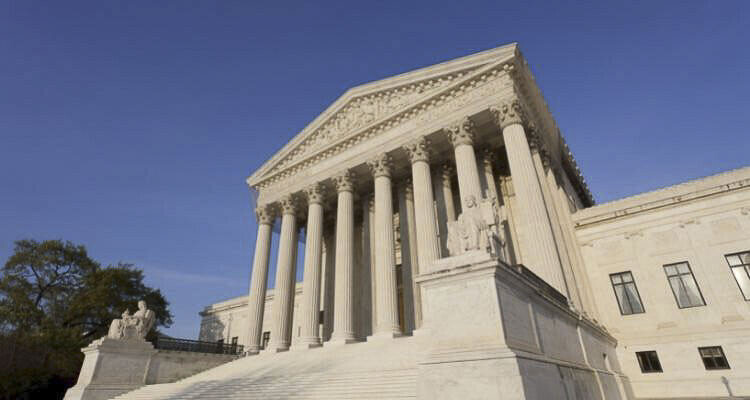
Federal agencies are ‘prosecutor, judge, and jury’
Justice in America calls for a trial by jury of one’s peers.
There are exceptions allowed by rule, such as for minor traffic offenses and such.
But there’s a new idea now, “trial by bureaucrat,” and the U.S. Supreme Court has agreed to review whether that is permissible.
It is the Institute for Justice that confirmed the court will take up Jarkesy v. SEC.
Jarkesy is a case that contests the legitimacy – and constitutionality – of administrative courts staffed with agency employees.
The IJ said it has similar challenges under way in courts regarding Department of Labor in-house agency courts on behalf of small business owners in New Jersey and Maryland.
“Joe Marino, owner of Sun Valley Orchards, is fighting against devastating penalties imposed by a Department of Labor system that unconstitutionally acts as prosecutor, judge and jury,” the IJ said.
When it was at the 5th U.S. Circuit Court of Appeals, judges there held that the Securities and Exchange Commission’s use of in-house agency judges to impose fines and penalties on Sun Valley violated the Seventh Amendment.
“The Constitution guarantees the right to trial by jury, not trial by bureaucrat,” explained Rob Johnson, a lawyer for the IJ.
“But, too often, federal agencies impose fines and penalties in agency courts, where agency employees serve as prosecutor, judge, and jury. That should frighten all Americans, but it is particularly frightening for small businesses, who, with limited resources, are forced to defend themselves for years in agency courts against potentially crushing fines.
“Now, with the Supreme Court poised to consider these issues, small businesses ensnared in agency courts can hope for relief.”
The organization sued the Department of Labor in 2021 on behalf of Sun Valley Farms, a family owned farm in New Jersey when a bureaucrat imposed over half a million dollars in fines and penalties, most of it based on a simple paperwork mistake.
The attack ended up forcing the family to sell what had been one of the largest family owned farms in New Jersey.
Then this year IJ began a similar case on behalf of C.S. Lawn & Landscape, Inc., of Maryland. That contests $55,000 in liability imposed by a DOL agency judge.
Both of those are before district courts right now.
The IJ pointed out under Article III of the U.S. Constitution, Sun Valley, C.S. Lawn, and George Jarkesy should have had their arguments reviewed federal courts, and federal judges, not agency bureaucrats.
“Agency courts arose in the 1970s, and their use to impose fines and take people’s property expanded rapidly, but the Supreme Court has never really addressed whether all that should instead happen in a real court,” said IJ lawyer Bob Belden. “Agency judges constitutionally can do things like process claims for social security benefits, but if a federal agency wants to fine you tens of thousands of dollars, it should have to prove its case in a real court with a real judge and a jury.”
Also read:
- Letter: ‘We’re going to give them some money and a plane ticket, and then we’re going to work with them’Camas resident Anna Miller supports a new structured self-deportation policy, calling it a balanced approach to immigration and economic needs.
- Pro-Palestinian protesters occupy UW building, 30 arrestedAbout 30 protesters were arrested at the University of Washington after occupying a building and demanding the school cut ties with Boeing.
- Sen. Braun praises UW officials for response to Monday protests, calls for prosecutionsSen. John Braun praised UW officials for their firm response to violent protests tied to the university’s relationship with Boeing.
- Largest parade in Southwest Washington bands together for a better tomorrowThe 59th annual Parade of Bands in Hazel Dell will feature 24 high school bands and more than 120 entries on May 17.
- Don’t leave tax dollars on the table; learn about county’s tax exemption program at May 16 event in WashougalClark County tax exemption specialists will assist seniors and people with disabilities during a May 16 event in Washougal.
- Trades Tuesday is here, hoping to become a trend in area schoolsA new campaign is launching in area schools to inspire students to consider careers in the trades.
- Opinion: What the 2025 legislature tells us about why Washington’s government keeps failingTodd Myers of the Washington Policy Center argues that Washington’s government fails because it resists humility, experimentation, and accountability in its policymaking.











